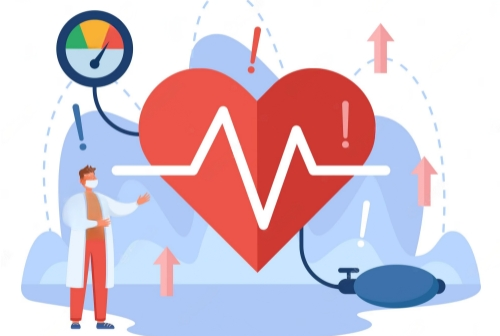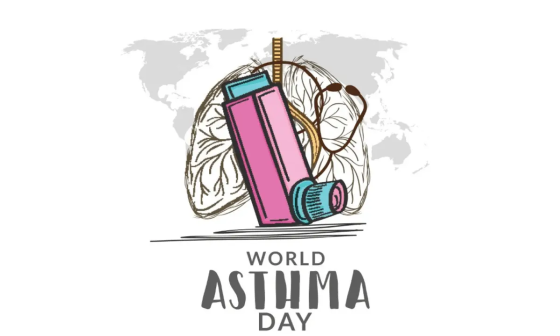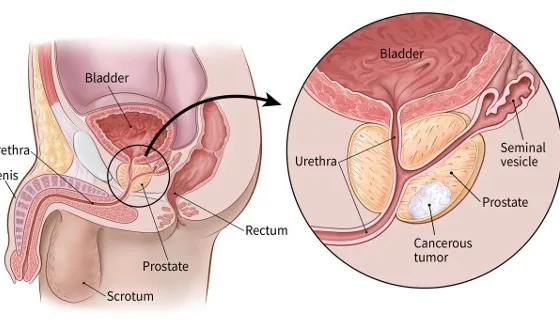Key Takeaways
- Why do most adults come down with painful waists, joints, and locomotive diseases?
- These chronic conditions include obesity, depression, high blood pressure, diabetes, etc.
- Intermittent fasting, and healthy eating, regular exercise can be able to cure a handful of these diseases.
- Learn more about the most chronic medical condition now and how you can prevent or manage them.
Young people and Chronic Diseases
It may seem odd to put chronic diseases and young people in the same sentence. When you hear chronic disease, old people come to mind. But don’t be deceived, the illness that people claim is for the old is now affecting the youth too and even more. Diseases like diabetes, heart disease, stroke, and cancer – are all that young people suffer from now. The cause for the majority of these diseases is careless lifestyles.
“I was diagnosed with endometriosis about a year ago and still haven’t come to terms with it, and this made me realize that having chronic disease so young was like my life ended before it started” – says Briana, an advocate for Chronic diseases among young people.
Briana represents the million number of young people suffering from chronic diseases around the world.
Understanding chronic disease in Nigeria
According to a study by NCBI (National Center for Biotechnology Information), the population with chronic diseases is about 64.5% and the youths make up 70% of the population. Chronic diseases are defined as conditions that last 1 year or more and require ongoing medical attention or limit activities of daily living or both. It is the leading cause of mortality worldwide. For developing countries like Nigeria, chronic disease complications are not only influenced by lifestyle but they are also influenced by the bad healthcare system, which leads to more deaths than in other developed parts of the world. Read below the various disease that can be caused by these lifestyles.
Here are 10 frequent chronic diseases among Nigerian Youth.
The most prevalent disease is Specific chronic diseases affecting. Meaning, causes, and prevention of these chronic diseases
- Arthritis
This is an inflammation of your joints, which causes pain and stiffness and is more common in women. There are more than 100 different forms of Arthritis like back pain, Bursitis, Bechet’s disease, Juvenile Dermatomyositis (JD), Lupus, Osteoarthritis, Rheumatoid Arthritis, etc. According to the Nigerian, Orthopaedic Association says 1.5million Nigerians suffer from Arthritis. Here are steps you can take to delay the onset of arthritis or manage the symptoms, including
-
- Avoid excess alcohol consumption
- Avoid injury
- Drink plenty of water
- Increase your vitamin intake
- Increase your calcium intake
- Protect your joints
- Exercises at least 5 times per week
- Stay within the recommended weight for your height – losing one pound can remove four pounds of pressure on your knees
- Make sure your back, legs, and arms are always supported
- Take precautions to avoid joint injuries
- Do not smoke.
You can find a pharmacy close to you here to help with prescribed medications
- Depression
Depression causes a persistent feeling of sadness, pessimism, hopelessness, fatigue, difficulty making decisions, changes in appetite, a loss of interest in activities, and more. Here are the steps to help manage depression include
-
- Manage stress levels
- Consider regular meditation and reach out when you are down
- Eating a healthy diet. focus on foods that are high in nutrients and promote the release of feel-good chemicals ‘endorphins’.
- Limit consumption of things like alcohol, caffeine, artificial sweeteners, and highly processed foods.
- With the physical and psychological benefits of exercise, your mood will improve through the release of endorphins and other ‘feel-good brain chemicals, boosting self-confidence and self-worth.
- When you are experiencing any warning signs of depression, talk to your doctor and ask about your treatment options.
Read about 6 ways you can deal with stress
- Endometriosis
It is a disease characterized by the presence of tissue resembling the endometrium (the lining of the uterus) outside the uterus. It causes a chronic inflammatory reaction that may result in the formation of scar tissue (adhesions, fibrosis) within the pelvis and other parts of the body. You know you have it because of the pain in your lower tummy or back (pelvic pain) – usually worse during your period.
You totally can’t prevent endometriosis, but you can reduce your chances of developing it by lowering the levels of the hormone estrogen in your body. Estrogen helps to thicken the lining of your uterus during your menstrual cycle.
-
- Exercise regularly
- Keep a low percentage of body fat
- Avoid large amounts of drinks with caffeine
- Talk to your doctor about hormonal birth control methods
Read more on what WHO described as endometriosis
- High blood pressure (hypertension)
A condition that involves how much blood your heart pumps, as well as how resistant your arteries are to the blood flow. When your heart pumps a lot of blood, and you have narrow arteries which resist the flow, that’s when you get high blood pressure, also known as hypertension. The danger of hypertension is not only that you can have it for years and not know it, but it can cause other serious health conditions, like stroke and heart attacks.
Things you can do to try to prevent or reduce High blood pressure
-
- Regulate your stress levels
- Losing just 10 pounds can reduce blood pressure
- Limit salt and alcohol intake
- Exercise daily
- Check your blood pressure regularly
- Epilepsy
Epilepsy is a central nervous system (neurological) disorder in which brain activity becomes abnormal, causing seizures or periods of unusual behavior, sensations, and sometimes loss of awareness. Anyone can develop epilepsy. Sometimes epilepsy can be prevented. Here are some of the most common ways to reduce your chances of developing it
-
- Prevent traumatic brain injuries
- Lower the chances of stroke and heart disease
- Get vaccinated
- Wash your hands and prepare the food safety
- Stay healthy during pregnancy
- Cancer
We do not know all of the risks and causes of cancer. However, there are a number of chemicals and physical and biological agents that have been shown to trigger the mistakes in the cell blueprint that cause cancer. These are called carcinogens and include tobacco, ultraviolet (UV) radiation, and asbestos. Each year, more than 13,000 cancer death are recorded due to smoking, sun exposure, poor diet, alcohol, inadequate exercise, or being overweight. Preventing cancer is one of the most effective ways to go about ending it, here are some ways you can
-
- You can reduce your risk of cancer by making healthy choices like
- Keep a healthy weight
- Avoid tobacco
- Limit the amount of alcohol you drink
- Protect your skin
- Get regular medical care
- Avoid risky behaviors
- Schedule cancer screening exams
- Ask your doctors about immunizations
- Diabetes
This is a disease that occurs when your body is resistant to or doesn’t produce enough Insulin. To keep you from developing diabetes or to manage this condition, your doctor may suggest
-
- Eating a healthy diet.
- Monitoring your carbohydrate and calorie intake, and
- Talking to your doctor about alcohol consumption
- Exercising for 30 minutes five times a week to keep your blood glucose levels in check.
Read about drugs you can use to manage Diabetes
- Heart disease
This is a condition caused by a build-up of plaque that narrows the arteries leading to the heart. Narrow or blocked arteries decrease the amount of oxygen-rich blood delivered to the heart. This can cause other complications like blood clots, angina, or heart attack. Here are some habits to help keep your heart in check
-
- Keep your stress level in check
- Do regular cardio exercises
- Get seven to eight hours to sleep each night
- Refrain from saturated and trans fats, and limit sugar and salt intake
- Abstain from smoking
- Talk to your doctor about the major risk factors
- Inflammatory Bowel Disease
Inflammatory bowel disease (IBD) is a term that describes disorders involving long-standing (chronic) inflammation of tissues in your digestive tract. People with inflammatory bowel diseases (IBD) like Crohn’s disease and ulcerative colitis have chronic intestinal inflammation. Symptoms include stomach cramps, diarrhea, and gas. Medications and surgery can help manage IBD flares, putting the condition into remission. Here are some other lifestyle activities to help you
-
- Eat small meals
- consider plenty of liquids
- Consider multivitamins
- Quit smoking
- Manage stress effectively
- Consider multivitamins
- Talk to a dietitian
- Limit dairy products
- Kidney Disease
Understand what damages your kidney; diabetes and high blood pressure are the greatest risk factors for kidney damage, hence, take steps to prevent this.
- Early detection and treatment;
- Talk to your doctor regularly and keep up on prescriptions you need to diminish symptoms
- Eat healthy meals
- Abstain from smoking
Don’t miss out so much on being young because you are sick. Always look out for healthy ways to live life and prevent most of these chronic diseases. Many of them are caused by key risk behaviors like smoking, inactive lifestyle, unhealthy meals, poor nutrition, and excessive alcohol intake. The younger an individual starts smoking and drinking, the greater the risk of addiction and chronic disease later in life. By making healthy choices, you can reduce your likelihood of getting a chronic disease and improve your quality of life. Finding a good doctor to manage a chronic patient shouldn’t be difficult. Stay up to date with ways to live healthily by subscribing to our blog post here. Stay in charge of your health by buying into simple healthcare microfinance plans here.
Related articles
The Truth About Hypertension – meaning, causes, symptoms, treatment






